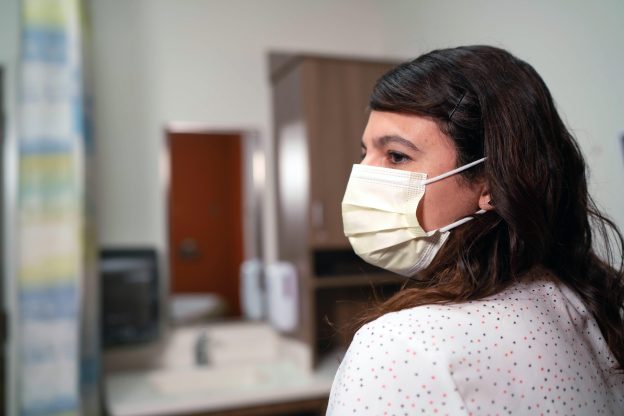
COVID-19 outcomes are more severe for people of color
A new Kaiser Permanente study published in Annals of Internal Medicine found that people of color were more likely to be hospitalized and to receive intensive-level care for COVID-19 compared to white patients even after adjusting for known health risk factors such as obesity, diabetes, and other conditions The study was among the first to show that these inequities affect Pacific Islander patients in addition to Black, Hispanic, and Asian people.
“This study underscores the continuing and possibly new health inequities brought on during the COVID-19 pandemic,” said the lead author, Claudia Nau, PhD, a researcher with Kaiser Permanente Southern California Department of Research & Evaluation. “Inequities in COVID-19 outcomes are a call to action for a culturally appropriate pandemic response and vaccination strategies that go beyond addressing existing health conditions. They should account for factors such as distrust in the medical system, resource constraints, language proficiency, and health literacy.”
This study was one of the first to look specifically at Pacific Islanders. Among that population, the study found rates of COVID-19 diagnosis, hospitalization, and the need for intensive-level care were higher than for people who are white.
After accounting for COVID-19 risk factors:
- Hispanic patients were more than 3 times more likely to be diagnosed or test positive for COVID-19 than white patients
- Pacific Islanders were 2.8 times more likely than white patients to require intensive-level care for COVID-19
- Asian patients were 2.5 times more likely than white patients to require intensive-level care for COVID-19
- African-American and Black patients were 1.7 times more likely than white patients to require intensive level care
“While our study could not tease out the reason for these persistent racial and ethnic disparities, it reflects what we are seeing with almost all other health conditions and highlights the health inequities present within this global pandemic” said Dr. Nau.
The researchers identified 47,974 COVID-19 cases through diagnoses and positive COVID-19 tests between March 1 and July 31, 2020, among adult members of Kaiser Permanente in Southern California. Of those patients, 4,517 (9.4%) were hospitalized and 1,498 (3.1%) required intensive-level care, such as high-flow oxygen or use of a ventilator.
This is the latest Kaiser Permanente study focused on racial and ethnic disparities in COVID-19 cases and outcomes. A previous study, also published in Annals of Internal Medicine, found racial and ethnic disparities in the likelihood of testing positive for the coronavirus, but no significant disparities in mortality among those who were hospitalized. The current study does not analyze mortality outcomes.
An important next step will focus on how to fully engage communities of color to assure widespread COVID-19 vaccination uptake.
“It is critical that we make sure that we address the structural barriers in our society to trusting and accessing the vaccine,” said Dr. Nau.





